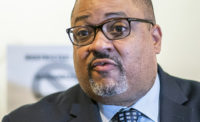Japanese authorities are unraveling what is shaping up as the largest and most highly organized bid-rigging scheme ever seen in the country. Investigators allege that two bid-rigging circles have been colluding to split Japans $3.02-billion annual market for steel bridges for as long as 40 years. Prosecutors have filed charges against more than 40 companies and singled out a dozen executives for prosecution. In the latest turn of events, investigators have brought charges against board members, executives and engineers working at the nations largest publicly owned highway corporation for aiding the bid-rigging.
Newspaper editorials and politicians now are all calling for corrupt practices to be rooted out. Takeshi Noda, a member of Japan's House of Representatives and a former minister of construction, says the nation needs to look at its bidding procedures. Currently, many public entities only allow selected, prequalified contractors to compete for projects.
"Completely open bidding would make bid-rigging more difficult," Noda says. But Hiroshi Yamazaki, a consultant with Tokyo-based Systems Co. who has written several books about the construction industry, says safeguards, such as a bonding system, need to be in place before embracing open bidding.
The scandal started unfolding May 23 when Japans Fair Trade Commission filed criminal complaints with the Tokyo Public Prosecutors Office against eight bridge builders suspected of bid-rigging, or "dango." Investigators then searched the offices of more than 40 contractors and arrested 14 executives. Some were later released but top executives of virtually all the nations major bridge builders, including Mitsubishi Heavy Industries Ltd., Kawasaki Heavy Industries Ltd., and Yokogawa Bridge Corp., all Tokyo, were charged with violating the Antimonopoly Law.
More raids and arrests have followed almost every week since. And prosecutors have briefed local media as they have pieced together how the dango worked. There were two dango rings. The K-kai, or K-group, comprised 17 major bridge building companies. The A-kai brought together 30 smaller contractors. The groupings align with the distinction made by many public works entities, which only allow designated major contractors to bid on the most challenging projects and restrict smaller contractors to bidding on smaller projects.
Within each group, a particularly powerful executive would take charge of splitting the annual bridge contract pie so each company got a share proportionate to its size and the amount of work it had done in the past. Once a winner and a bid price was decided for a given project, other firms would submit higher bids to keep up the appearance of competition.
A common practice long thought to contribute to incestuous ties between the public and private sectors is "amakudari," or "descent from heaven." The term refers to the practice of retiring governmental officials joining private sector firms and sharing business or ministry information. The prosecutors office alleges that Sozo Kanda, 70, who joined Yokogawa Bridge in 1995 after retiring from Japan Highway Public Corporation, which builds and operates a nationwide network of toll roads, became the bid-rigging king pin around 1996.
Prosecutors also believe that such retired executives are the conduit for leaking to the dango rings the supposedly secret maximum acceptable bid price set by project planners. According to the offices investigations, winning bids were consistently within a small percentage of this maximum.
The collusion apparently extended to the Japan Highway engineering department. Investigators claim that Michio Uchida, a Japan Highway vice president, in at least one case ordered project engineers to split into two contracts a bridge project they had intended to let under one bid. The split was allegedly sought to allow more companies to share the work. The prosecutors office claims this added 1% to project cost. Uchida is charged with violating the Antimonopoly Law and breach of public trust.
On August 2, investigators again raided the offices of Mitsubishi Heavy Industries as well as 10 other major companies seeking evidence of collusion on bids for water-treatment plants. If convicted, the firms face hefty fines and may be barred from bidding on bridge projects for some period of time. Individuals could face jail sentences, though in the past such sentences have often been suspended.


Post a comment to this article
Report Abusive Comment